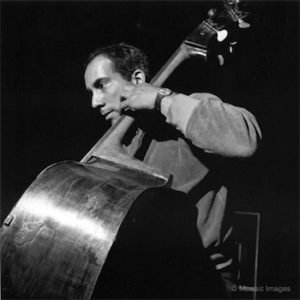
Walter Booker
Walter Booker was born on this date in 1933. He was a Black musician, music administrator, and teacher.
He was born in Prairie View, TX, but moved with his family when he was young to Washington, D.C., in the mid-1940s. In 1959, at 26, Booker began playing the bass while in the Army (serving in the same unit as Elvis Presley). Shortly after leaving the military, he joined Andrew White’s JFK Quintet--a group of young D.C. musicians accomplished enough to attract the attention of Cannonball Adderley, who produced a recording for them. Booker’s subsequent work was touring America with the Shirley Horn Trio and Billy Hart on drums.
In 1964, he moved to New York City and was hired by trumpeter Donald Byrd. From there, he joined Stan Getz (1965 and ’66) and Sonny Rollins (1967 and ’69). Booker recorded and toured with Ray Bryant, Art Farmer, Harold Vick, Betty Carter, and, most notably, Thelonious Monk’s last group. It was also in 1969 that Booker was invited to join the Cannonball Adderly Quintet, an association that lasted until Cannonball died in 1975. During the same time, he designed, built, and ran the Boogie Woogie Studio, a Mecca for musicians worldwide.
From 1975 to 1981, Booker was Sarah Vaughan’s bassist while producing recordings at his studio. His studio helped shape several up-and-coming young groups, including Natural Essence. During that time, he became deeply involved with Brazilian music, ultimately forming Love Carnival and Dreams.
In the early 1980s, Booker went to California with the John Hicks Trio to record an album and to tour with the trio, accompanying saxophonist Pharaoh Sanders. Shortly after that, Nat Adderley asked Booker to join his new quintet.
In 2001, he toured with Jimmy Cobb as part of the Bertha Hope (his wife) Trio. In addition to the Walter Booker Quintet, he formed Elmollenium, based on the same core group as the Quintet (plus Bertha Hope) and dedicated to playing the music of Elmo Hope.
Walter Booker, 72, died at his home in Manhattan on Nov. 24, 2006, after suffering cardiac arrest.